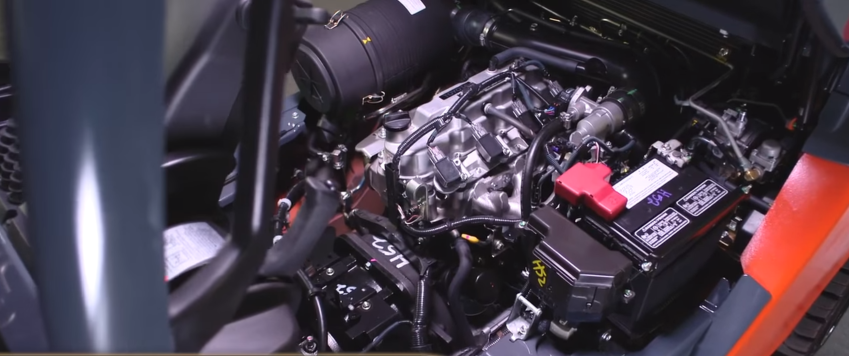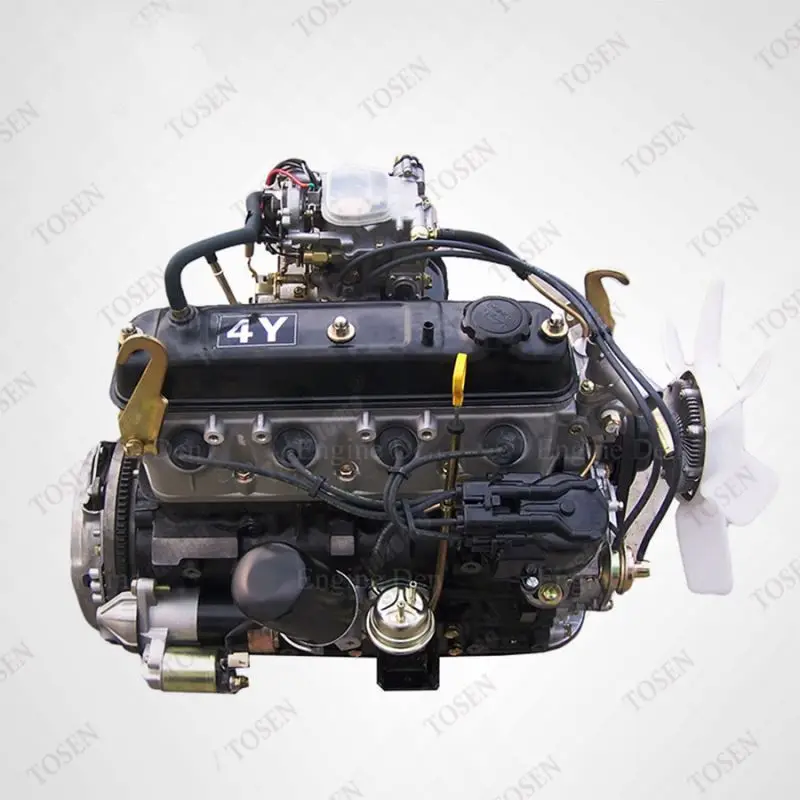How the 4Y Engine Contributes to a Smooth and Powerful Driving Experience
How the 4Y Engine Contributes to a Smooth and Powerful Driving Experience
Blog Article
Checking Out the Various Kinds Of Engine: Which One Fits Your Demands?
Interior combustion engines proceed to control due to their reliability, while electric engines are obtaining grip for their sustainability. Hybrid engines supply a versatile compromise, and diesel engines stand out for their power in requiring applications.

Internal Burning Engines
Inner burning engines (ICEs) are the backbone of modern transport, powering a huge array of lorries from cars and trucks to planes. These engines operate on the concept of converting gas into mechanical power through a series of regulated explosions within a burning chamber. The most typical kinds of ICEs include gas engines, diesel engines, and rotary engines, each designed to satisfy specific efficiency and performance requirements.
Gasoline engines commonly utilize trigger ignition, while diesel engines depend on compression ignition, resulting in distinctive distinctions in gas efficiency and power output (4y engine). Rotary engines, or Wankel engines, provide a portable layout and smooth operation, however are less generally utilized in mainstream applications
ICEs have actually undertaken substantial advancements in technology, including the intro of turbocharging and gas shot systems, which boost total performance and efficiency. In spite of their effectiveness renovations, ICEs face raising analysis due to their ecological effect, especially concerning greenhouse gas discharges.
Electric Engines
As problems concerning environmental sustainability and nonrenewable fuel source dependence expand, electric engines have become an engaging choice to interior burning engines. These engines make use of electrical motors powered by batteries or fuel cells, supplying a cleaner and much more effective means of propulsion.
Among the key advantages of electrical engines is their minimized exhausts. Unlike traditional engines that shed fossil fuels, electric engines produce no tailpipe emissions, significantly decreasing air pollution and adding to enhanced public health. In addition, the efficiency of electrical motors often exceeds that of inner burning engines, transforming a greater proportion of energy from the power source into functional power for activity.
Electric engines are also noteworthy for their silent operation, making them perfect for metropolitan settings. 4y engine. The simplicity of their layout results in less moving parts, which can lead to lowered upkeep costs and boosted integrity in time
However, challenges remain, consisting of battery manufacturing effects, charging facilities, and variety limitations. In spite of these hurdles, the growing investment in electrical car innovation and sustainable energy resources points towards an encouraging future for electrical engines, placed to play an essential role in the change towards lasting transport.
Hybrid Engines
Blending the advantages of both electric and standard interior combustion engines, hybrid engines represent a flexible solution in the quest for reliable and lasting transport. These engines combine a fuel or diesel engine with an electrical motor, permitting improved fuel performance and minimized exhausts compared to conventional vehicles.
Hybrid engines run in several settings, using the electric motor for low-speed driving and the interior burning engine for higher speeds or when more power is needed. This dynamic operation not only improves gas economy however likewise adds to a smoother driving experience. Regenerative braking is another critical function, recording power usually lost during braking and rerouting it to recharge the battery.

As customers increasingly prioritize eco-friendliness, hybrid engines stand out as a functional choice, providing a reliable balance of efficiency, efficiency, and environmental responsibility. This adaptability makes them suitable for city travelling and long-distance travel alike.
Diesel Engines
Performance and power are hallmarks of diesel engines, which have actually long been preferred for their toughness and fuel economic situation. These engines operate the concept of compression ignition, where air is compressed to a heat before fuel is injected, sparking it without the need for spark plugs. This process enables diesel motor to accomplish higher thermal YOURURL.com performance compared to gasoline engines, converting right into better gas gas mileage and lower carbon dioxide emissions.
Diesel motor are especially appropriate for heavy-duty applications such as trucks, buses, and commercial equipment, where torque and sturdiness are vital. Their style typically includes stronger components to stand up to the greater stress created throughout procedure, leading to longer life span and lowered maintenance expenses.

Alternate Gas Engines
While diesel engines have long controlled the landscape of heavy-duty source of power, alternative gas engines are gaining grip as viable options for a more sustainable future. These engines make use of a range of gas, such as pressed gas (CNG), hydrogen, propane, and ethanol, aiming to minimize greenhouse gas exhausts and reliance on fossil fuels.
One considerable advantage of alternative fuel engines is their prospective to lower carbon footprints. CNG engines discharge less toxins compared to traditional diesel engines, making them ideal for city transit systems and fleets seeking to enhance air high quality. Ethanol, derived from biomass, not only minimizes emissions however also supports farming economic situations.
Hydrogen fuel cells represent a cutting-edge growth in you can try this out this world, providing zero-emission power with a chain reaction between hydrogen and oxygen. Challenges such as facilities growth and production prices stay obstacles to prevalent fostering.
Conclusion
To conclude, choosing the appropriate engine kind necessitates mindful factor to consider of particular requirements and choices. Internal combustion engines supply reliability, while electric engines focus on sustainability and decreased maintenance. Hybrid engines integrate the benefits of both, improving performance, whereas diesel engines provide exceptional power and torque for heavy-duty applications. Different gas engines existing green alternatives, albeit with potential facilities difficulties. Inevitably, a comprehensive evaluation of driving practices and environmental values will certainly facilitate an informed decision regarding engine selection.
Crossbreed engines use a flexible concession, and diesel engines stand out for their power in requiring applications. The most typical types of ICEs consist of gasoline engines, diesel engines, and rotary engines, each created to meet certain performance and performance demands.
Unlike standard engines that shed fossil fuels, electrical engines create zero tailpipe emissions, dramatically reducing air contamination and contributing to improved public health and wellness.Hybrid engines run in numerous modes, making use of the electrical motor for low-speed driving and the interior combustion engine for greater speeds or when more power is needed. Hybrid engines integrate the benefits of both, improving effectiveness, whereas diesel engines offer superior power and torque for sturdy applications.
Report this page